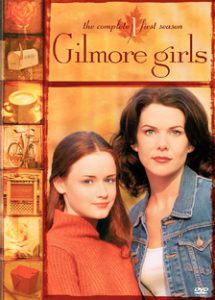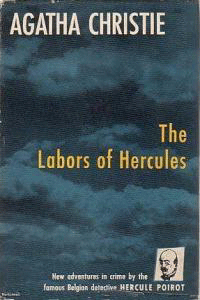Agatha Christie tries to tie a dozen Hercule Poirot cases in with the Greek myth of “The Labors of Hercules” in her 1947 short-story collection of the same name. Via stories originally printed in magazines from 1939-47, Christie puts Poirot through mental trials that metaphorically parallel Hercules’ physical trials. (For example, instead of fighting a lion, Poirot matches wits with a lion of society.)
Embarking on ‘retirement’
The fact that Poirot is the opposite of Hercules in every respect except his name hangs like a cloud over the premise – even though we have a laugh about it when Poirot comes up with the notion of seeking 12 of his own “labors.”
These stories begin to unspool shortly before Christie’s first novel, “The Mysterious Affair at Styles” (1920), wherein Poirot “retires” from detective work in order to raise vegetable marrows. So she’s often writing about the past rather than the present. As such, “The Labors of Hercules” is short on sharp insights about the contemporary condition (with one exception).

“The Labors of Hercules” (1947)
Author: Agatha Christie
Genre: Mystery short stories
Series: Hercule Poirot No. 24
Setting: England, 1920-1947
The stories don’t take place in immediate succession, but rather over the course of decades. But Christie doesn’t show any particular growth in Poirot’s character or abilities.
The Labors of Hercules themselves are a loose connective tissue, recalling Christie’s approach in “Partners in Crime.” These stories can mostly stand alone. Oddly, the one that least stands alone, “The Flock of Geryon,” was recollected in “The Last Séance” (2019) because of its supernatural theme.
More pleasure is gleaned from “Geryon” when you’ve already read “The Nemean Lion,” which opens this collection. This thematic companion to “Murder on the Orient Express” is fascinating because Poirot sympathizes with Miss Carnaby after he exposes her ingenious dognapping scam. He befriends her, and she proves an excellent assistant in exposing a bigger scam in “Geryon.”
The countess returns
Armchair Poirot biographers will love “The Capture of Cerberus” because Poirot reunites with Countess Vera Rossakoff. He met her in “The Big Four,” which takes place in the 1920s, and this is 20 years later – thus tipping me off that the Labors of Hercules are a spread-out series of cases.
“The Big Four” is terrible by Christie’s standards, but the idea of Poirot being totally smitten with a woman is so unusual that Rossakoff is fascinating for that reason alone. Even the noncommittal Miss Lemon, Poirot’s bland and efficient secretary, is stunned that Poirot is in love.

“Cerberus” is the book’s last and best tale. It’s a good mystery, but it particularly stands out by being “Labors’ ” only piece of social commentary. Christie reveals her personal (negative) opinion about drugs and drug dealing. She invents an evocative underground bar called Hell that’s as far removed from a cozy country manor as you can get.
Earning some attention
Poirot’s connections to Miss Carnaby and Countess Rossakoff define “Labors.” The other stories aren’t bad, but they are on the cold and clinical side. Inspector Japp appears in some and gives his usual amusing observations about Poirot’s arrogance. The other familiar faces are Lemon and butler Georges, whom Christie defines by their utter lack of definition.
Comfortable tropes are on display, including a love triangle, an altered identity, real jewelry replaced with a paste fabrication, and a woman who disappears off a rail car.
The latter trope can be found in “The Girdle of Hippolyta,” which is actually quite good. It’s impressive that Christie fools us even though we’re now as familiar with English countryside train travel as she is. And it’s amusing that Poirot is hounded by young women who seek his autograph.
It’s nice to see him get the recognition he desires every now and then. As these 12 cases show, Hercule Poirot backs up his boasts – even if his link to the Hercules of Greek myth remains as tenuous as at the book’s start.
Sleuthing Sunday reviews an Agatha Christie book or adaptation. Click here to visit our Agatha Christie Zone.

